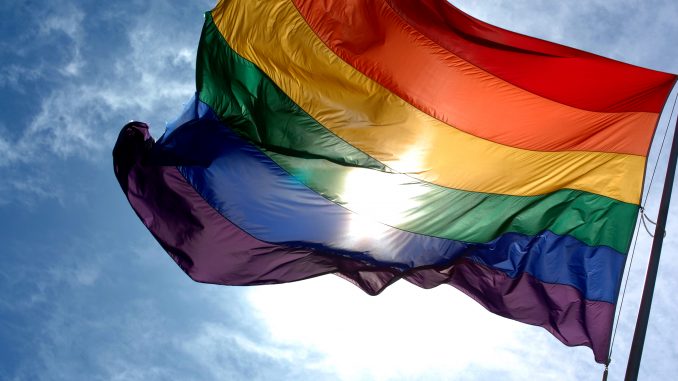
The first National Coming Out Day was celebrated 30 years ago on Oct. 11, honoring the bravery and strength of all those who have come out as a member of the LGBTQIA+ community.
In 1988, when the day was first celebrated, the cultural climate was extremely dangerous for LGBTQIA+ members. Due to this, thousands of people hid their true identity. In 1993, Robert Eichberg, one of the cofounders of National Coming Out Day, said “Most people think they don’t know anyone gay or lesbian, and in fact, everybody does. It is imperative that we come out and let people know who we are and disabuse them of their fears and stereotypes.”
On Thursday, Oct. 11, a collaborative panel was held by the Psychological Counseling Center (PCC), the Office of Human Resources and the Honors Center in celebration of National Coming Out Day.
“We (the PCC and I) thought it was important to offer an event that showcased students’ experience with the coming out process, especially on the 30-year anniversary of National Coming Out Day,” said campus LGBTQ Coordinator Emma Morcone.
The panel featured five students, all members of the LGBTQIA+ community, who shared their experiences with the events leading up to their coming out, how they came out and the different responses they were met with.
“Coming out can be an empowering, relieving, and exciting process for many. We must acknowledge, however, that this is not everyone’s experience,” Morcone said. “The continued marginalization of the LGBTQIA+ community is still very prevalent.”
Lauren Spencer, the LGBTQIA+ liaison at the PCC, moderated the panel, getting the conversations started and asking follow-up questions.
“I was really impressed with the panelists openness and vulnerability, as well as the way they shared their success and their struggles,” Spencer said. “I think that aspect of this is very real. Coming out can be a very positive experience for some, while for some people it can be unsafe and dangerous.”
The panel was held in the Honors Center, where dozens of LGBTQIA+ community members and allies gathered to listen to the panelists.
In a promotional email sent out before the panel, the groups wrote, “We present this panel in the hope that you in the audience will find connection and community through this event, whether you are members of the LGBTQIA+ community in various stages of the coming out process, allies or someone just beginning to learn about this topic.”
The discussion itself was extremely moving, emotional and above all else, hopeful. Panelists all identified differently within the LGBTQIA+ community, and each shared stories of the different reactions to their personal coming out, as well as how their lives have changed since that moment.
One panelist, who came out for the first time at the age of seven, recounted how he spent his last year of high school homeless due to his family’s disproval of his sexuality, spending nights at friends’ houses and on park benches. He doesn’t feel, however, that it’s his responsibility to change their mindset.
Another panelist described the moment she came out as bisexual, and her sister responded with “I knew you were a lesbian!” She explained how reactions like this, though not necessarily negative, can hurt just as bad.
“A positive coming out experience is not always the reality. For many, coming out continues to be a dangerous process,” Morcone said.
On campus, many resources are available for LGBTQIA+ students, including the Allies Program, gender inclusive housing, gender neutral restrooms and Rivera House, the LGBTQIA+ living learning community.
“The PCC is available for anybody who needs to talk. We offer individual counseling, referring to community providers and a variety of groups,” Spencer said. “I lead the ‘All of Me’ group, which is a discussion group for LGBTQIA+ students.”
Morcone explained that there were several goals of the panel.
“First, we wanted the program to be informative and illustrate the hardships faced by many in the LGBTQ+ community. Next, wanted to provide a sense of hope and inspiration for members of the LGBTQ+ community, whether they are out or not,” Morcone said. “Lastly, we wanted to provide a space for sharing, but also a space for healing and support.”
For more information on resources available for LGBTQIA+ students, visit newpaltz.edu/lgbtq/.
